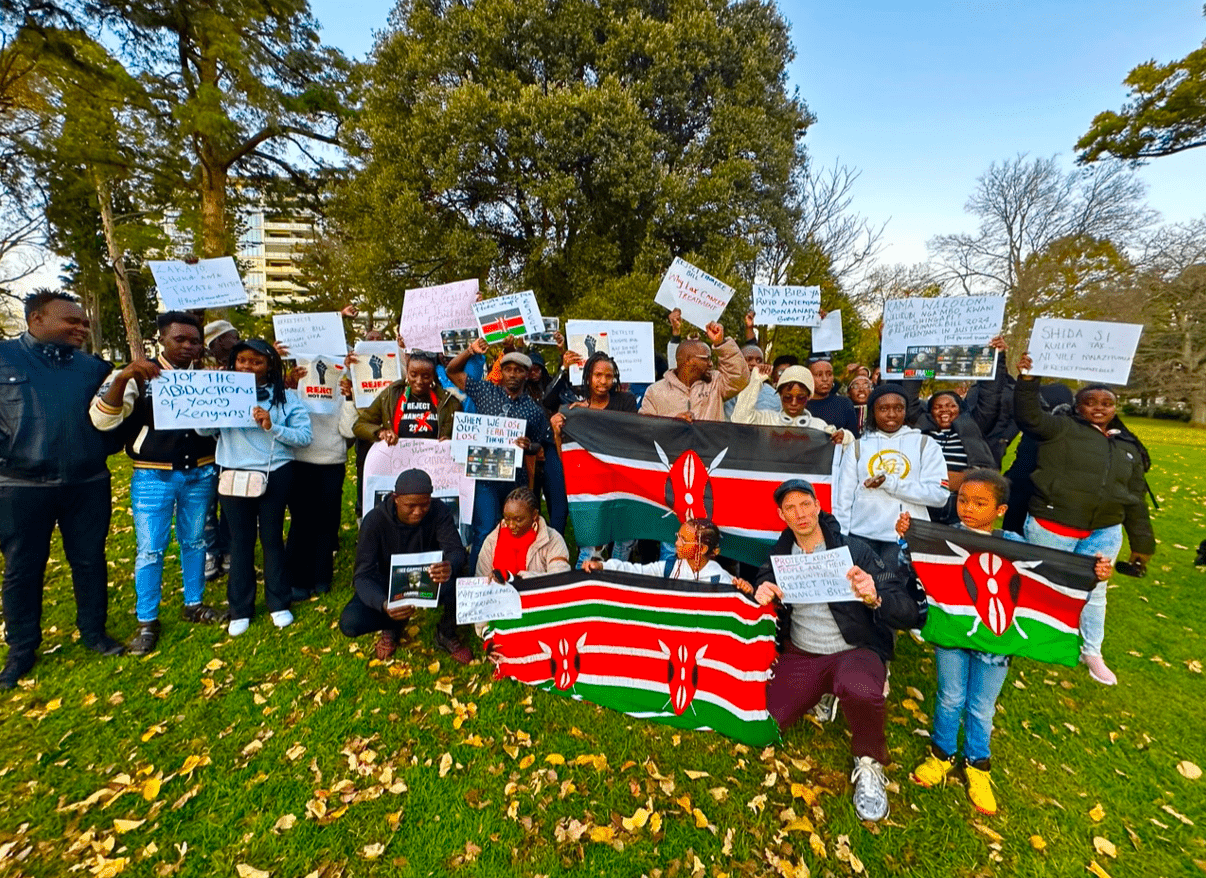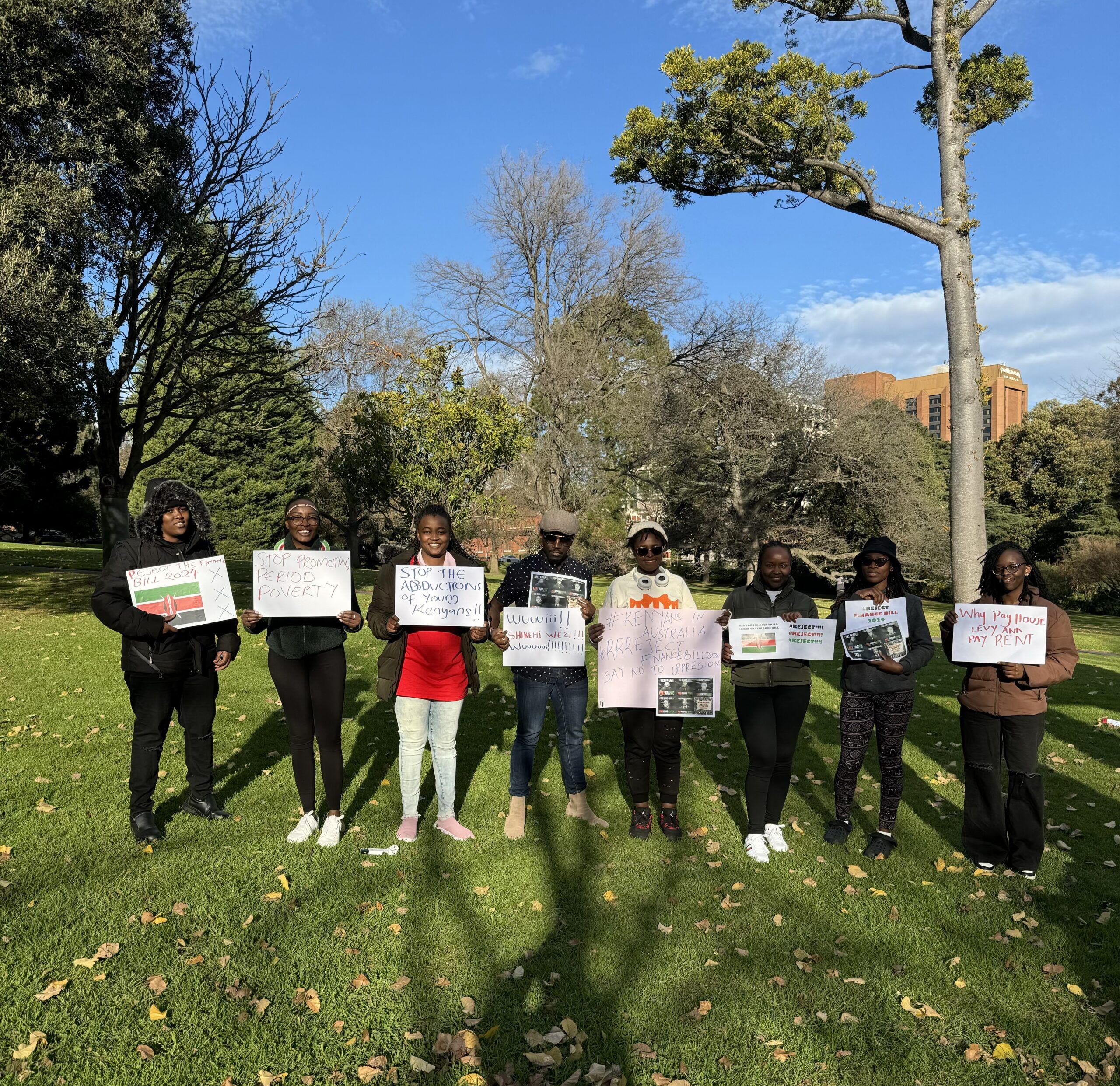Melbourne, Australia – On Tuesday, Melbourne’s Central Business District became the focal point for members of the Kenyan community in Australia as they gathered to protest a controversial finance bill passed in Kenya.
The bill, which is anticipated to be signed by President William Ruto, has sparked widespread outrage and unrest, both in Kenya and among its diaspora.
The protests in Kenya have been marked by violence, with police firing on demonstrators attempting to storm the legislature in Nairobi, resulting in at least five deaths.
President Ruto, addressing the nation on the same day, stated that security was his “utmost priority” and condemned the protests as actions by “dangerous people” and “criminals pretending to be peaceful protesters.”
“It is not in order, or even conceivable, that criminals pretending to be peaceful protesters can reign terror against the people…,” President Ruto declared, promising a swift response to what he described as “treasonous events.”


In Nairobi, chaotic scenes unfolded as protesters overwhelmed police forces, chased them away, and caused significant damage to the parliament building, parts of which were set ablaze.
Similar youth-led protests erupted in several other cities and towns across Kenya, with demonstrators calling for President Ruto’s resignation and expressing their opposition to the tax increases proposed in the bill.
Police efforts to disperse the crowds using tear gas and water cannons were initially unsuccessful, leading to the use of live ammunition.
Defence Minister Aden Duale announced the deployment of the army to address the “security emergency,” which involved the destruction and breaching of critical infrastructure.
The Kenya Medical Association reported that at least five people had been shot dead, with 31 others injured, including 13 with live bullets. The association called for safe medical corridors to protect medical staff and ambulances.
President Ruto, who won the election nearly two years ago on a platform advocating for Kenya’s working poor, faces mounting pressure from both international lenders and a struggling population.
The finance bill aims to generate an additional $2.7 billion USD ($4 million AUD) in taxes to reduce Kenya’s heavy debt load, with interest payments consuming 37% of the annual revenue. However, the proposed tax increases come at a time when Kenyans are grappling with the economic fallout from the COVID-19 pandemic, the war in Ukraine, consecutive droughts, and currency depreciation.
Ambassadors and high commissioners from Britain, the U.S., Germany, and other countries issued a joint statement expressing deep concern over the violence witnessed during recent anti-tax protests in Kenya, and called for restraint from all sides.
In Australia, the Kenyan High Commission has yet to publicly comment on the protests. However, the sentiment among Kenyans in Melbourne is clear.
Makena Mwita, a Kenyan accountant living in Australia, voiced frustration over the Kenyan government’s “corruption” and “misappropriation of funds” at Tuesday’s rally in Melbourne.
“People are already overtaxed so we don’t see the need to further increase taxes. Instead, we see a problem with [government] spending,” Mwita told BACKCOVERNEWS.COM.
Kathleen, another protester, criticised the finance bill for exacerbating economic issues in Kenya.
“In my opinion, the finance bill 2024 is what I would describe as an act of terrorism against the Kenyan people. The Kenyan people are poor, we’re struggling, and we rely on relief food. The youth are unemployed while the government and the few people in power are getting more wealthy,” she said.
The protests in Australia reflect the broader discontent among Kenyans worldwide, highlighting the global resonance of domestic policies and their impact on diaspora communities. As the bill moves closer to becoming law, the call for accountability and reform grows louder both at home and abroad.

